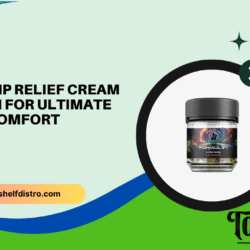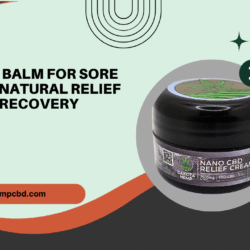In industrial machinery and hydraulic systems, proper sealing is critical to ensure optimal performance, prevent leaks, and extend equipment lifespan. Among various sealing components, the hydraulic oil seal plays a vital role in maintaining system efficiency and preventing contamination. From heavy-duty manufacturing equipment to precision machinery, hydraulic oil seals are indispensable in protecting equipment and enabling smooth operations. Understanding their types, functions, and applications is essential for industries seeking reliable solutions and long-term equipment performance.
Understanding Hydraulic Oil Seals
A hydraulic oil seal is a mechanical device designed to retain hydraulic fluid within a cylinder or system while preventing the entry of contaminants such as dust, dirt, and moisture. They are typically installed on rotating or reciprocating shafts to maintain pressure and ensure smooth motion. These seals are engineered from materials that can withstand high pressure, temperature fluctuations, and chemical exposure, making them suitable for demanding industrial environments.
Hydraulic oil seals serve multiple purposes:
- Leak Prevention: They prevent hydraulic fluid from escaping, maintaining system pressure and efficiency.
- Contaminant Exclusion: They keep dust, dirt, and other foreign particles out of critical components, reducing wear and tear.
- Load Support: Seals help maintain lubrication, reducing friction and wear between moving parts.
- System Efficiency: By preventing fluid loss and contamination, hydraulic oil seals enhance the overall performance and reliability of machinery.
Their design often includes a flexible lip that maintains contact with the rotating or reciprocating surface, a metal casing for structural support, and sometimes additional features like garter springs for improved sealing performance.
Types of Hydraulic Oil Seals
Hydraulic oil seals come in various types, each tailored to specific industrial applications:
- Rotary Seals: Designed for shafts that rotate within hydraulic systems, these seals provide continuous protection against leaks and contaminants.
- Rod Seals: Used in hydraulic cylinders, rod seals prevent fluid leakage along the piston rod and maintain system pressure.
- Piston Seals: Installed inside hydraulic cylinders, piston seals retain fluid on one side of the piston, ensuring smooth linear motion.
- Wiper Seals: Positioned at the cylinder entry points, wiper seals remove contaminants from rods entering the system.
- Combination Seals: Integrate multiple functions, offering both sealing and wiping capabilities in a single unit.
Selecting the correct type of hydraulic oil seal depends on factors such as operating pressure, temperature range, chemical compatibility, and motion type.
Applications of Hydraulic Oil Seals
The versatility of hydraulic oil seals makes them essential across multiple industries. Some of the key applications include:
- Manufacturing and Production Equipment: Seals maintain fluid integrity in presses, injection molding machines, and metalworking equipment.
- Construction Machinery: Excavators, loaders, and cranes rely on durable hydraulic oil seals to ensure reliable hydraulic system performance under harsh conditions.
- Automotive Industry: Hydraulic systems in braking, steering, and suspension components depend on seals for safety and efficiency.
- Aerospace and Aviation: Precision hydraulic systems in aircraft use high-performance seals to withstand extreme pressures and temperatures.
- Energy Sector: Hydraulic oil seals are used in turbines, pumps, and drilling equipment to maintain optimal fluid flow and prevent leaks.
Across these sectors, the integrity of hydraulic oil seals directly impacts operational efficiency, equipment longevity, and safety standards.
Importance of Industrial Equipment Maintenance
Regular Industrial Equipment Maintenance is essential to ensure that hydraulic oil seals function effectively. Maintenance practices include inspecting seals for wear, checking for leaks, cleaning surrounding components, and replacing seals before failure occurs. Neglecting maintenance can lead to fluid leakage, system inefficiencies, costly downtime, and even catastrophic equipment failure.
Preventive maintenance strategies often involve scheduled inspections and using high-quality hydraulic oil seals compatible with the system’s pressure and temperature requirements. Additionally, proper installation techniques are crucial, as incorrect fitting can lead to premature wear and system inefficiency. Maintenance programs that include hydraulic oil seal checks help organizations reduce operational disruptions and extend the service life of their equipment.
Material Considerations for Hydraulic Oil Seals
Hydraulic oil seals are manufactured using a variety of materials to suit different industrial environments:
- Nitrile Rubber (NBR): Commonly used due to its excellent resistance to oils and wear, suitable for moderate temperatures.
- Fluoroelastomer (FKM/Viton): Offers high-temperature resistance and chemical stability, ideal for extreme conditions.
- Polyurethane (PU): Provides high wear resistance and mechanical strength, often used in heavy-duty applications.
- PTFE (Teflon): Resistant to high temperatures, chemicals, and friction, used in specialized industrial systems.
Choosing the right material is critical to ensure that the seal can handle the specific operating pressures, temperatures, and chemical exposures of the system it serves.
Advantages of Using High-Quality Hydraulic Oil Seals
Investing in high-quality hydraulic oil seals provides several benefits:
- Enhanced System Efficiency: Proper sealing prevents fluid loss and maintains optimal pressure levels.
- Reduced Downtime: High-quality seals are less prone to failure, reducing unexpected maintenance interruptions.
- Longer Equipment Lifespan: By minimizing friction and wear, seals protect critical components from damage.
- Cost Savings: Reliable seals decrease the frequency of replacements and reduce the risk of costly system failures.
- Operational Safety: Preventing fluid leaks reduces fire hazards, environmental contamination, and safety risks to personnel.
These advantages make hydraulic oil seals a critical component in achieving reliable, safe, and efficient industrial operations.
Leading Providers of Hydraulic Oil Seals
Several companies have emerged as trusted providers of high-quality hydraulic oil seals, offering durable products, technical support, and maintenance services to industrial clients:
- SabTech – A leading supplier of hydraulic oil seals and related industrial solutions, SabTech delivers high-performance seals suitable for a wide range of machinery and hydraulic systems. Their expertise in industrial equipment maintenance ensures that clients receive both reliable products and comprehensive service support.
- SKF – Globally recognized for bearings and sealing solutions, SKF provides hydraulic oil seals designed to withstand extreme pressures and temperatures in demanding industrial applications.
- Freudenberg Sealing Technologies – Offers a diverse range of hydraulic seals engineered for reliability, durability, and precision in complex industrial systems.
- Trelleborg Sealing Solutions – Supplies advanced hydraulic oil seals for mobile and industrial applications, focusing on wear resistance, fluid retention, and operational efficiency.
- Parker Hannifin – Known for its hydraulic components, Parker offers high-quality seals designed for industrial, automotive, and energy sector applications.
These companies combine engineering excellence, rigorous testing, and material expertise to provide hydraulic oil seals that meet global performance standards.
Future Trends in Hydraulic Seal Technology
The future of hydraulic oil seals lies in enhanced materials, precision engineering, and smart maintenance technologies. Innovations include:
- Advanced Materials: New polymers and composites that offer higher temperature and chemical resistance, extending seal life.
- Self-Lubricating Seals: Reduce friction and wear, improving efficiency and reducing the need for maintenance.
- Predictive Maintenance Integration: Sensors and IoT-enabled systems monitor seal performance in real-time, allowing for proactive replacement before failure.
- Eco-Friendly Solutions: Sustainable materials and environmentally safe manufacturing processes are gaining traction, aligning with industrial sustainability goals.
These trends indicate that hydraulic oil seals will continue to evolve, becoming more durable, efficient, and integrated with modern industrial maintenance practices.
Conclusion
Hydraulic oil seals are a cornerstone of reliable hydraulic systems, ensuring efficiency, safety, and longevity across industrial applications. From heavy machinery to precision equipment, these seals maintain fluid integrity, prevent contamination, and reduce wear and tear on critical components. Regular Industrial Equipment Maintenance further enhances their effectiveness, preventing leaks, downtime, and costly repairs.
With leading suppliers like SabTech providing high-performance hydraulic oil seals and comprehensive support services, industries can trust in the durability, efficiency, and safety of their equipment. By understanding their applications, selecting the right materials, and maintaining them properly, hydraulic oil seals continue to be a vital element in the smooth operation of modern industrial systems.





